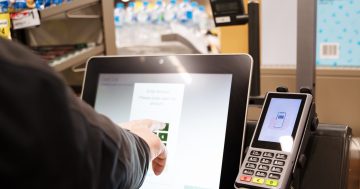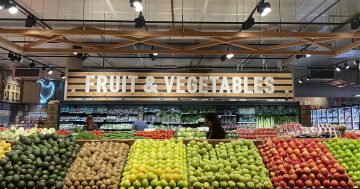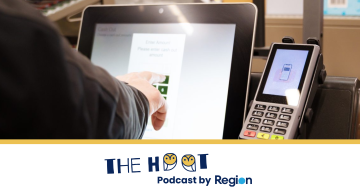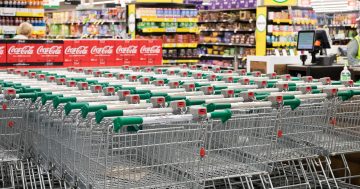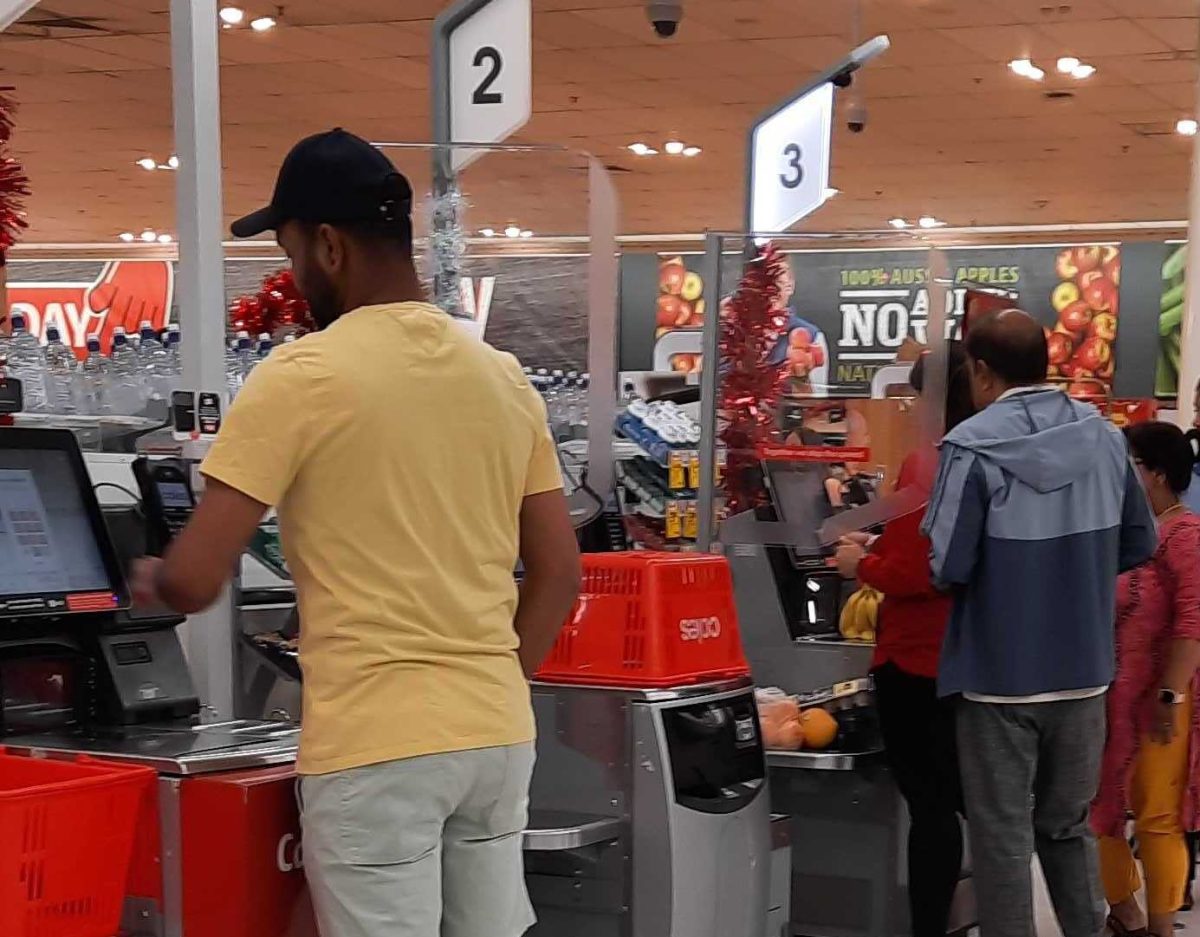
Having fun? Sooo convenient. For the supermarket bottom line that is. Photo: Ian Bushnell.
Year in Review: Region is revisiting some of the best Opinion articles of 2024. Here’s what got you talking, got you angry and got you thinking this year. Today, Ian Bushnell takes on the big supermarkets.
We must be mugs. Not only are the big supermarkets making mega profits in a cost-of-living crisis, but they also keep outsourcing customer service to us.
Self-checkers are everywhere, bopping at us, talking to us, scraping our data and now even filming us.
Of course, they’re one reason why the virtual cash registers are ringing out across the share market, but the increasing loss of humans from the shopping equation is feeding stress levels and fanning consumer anger.
A recent outing at Colesworths was marked by an absence of checkouts, and even the self-checking conveyor belt aisle was down, on a Saturday morning.
While many battle through the gauntlet of self-checkers with full trolleys, realistically, they are only good for a few items.
The systems even differ from chain to chain, leading to inevitable snafus as customers lose their way and have to flag staff to assist them.
This happens all the time.
A colleague recently had a scanning problem, and an attendant first watched a film of what had happened before fixing the issue. Isn’t that just a little too 1984?
A time and motion study might discover that if said staff member was on an actual checkout actually serving the customer it might just be a faster and less painful experience.
It would also be interesting to measure customers’ blood pressure as they negotiate the incessant beeping, AI-generated voices, and uncooperative scanners, all the while having to manage all manner of items and pack your own bags in a cramped space as humanity surges through with barely an acknowledgment.
The supermarkets are getting us to literally do the heavy lifting and charging us a fortune for the dubious pleasure.
For those few staff left at checkouts when they are operating, basic training seems to be optional.
How does one explain the nonsensical way some pack bags? Filling cooler bags up with non-perishables and vice versa. Putting cans on top of fruit or eggs. Or squeezing everything into a bag to the point that it can hardly be lifted.
Even then, some human interaction and handing over the checkout responsibility after a shop is preferable to combating the beeping monsters.
The problem is that this option is increasingly not available as managers run down their staffing in favour of automatons.
We are also too willing, too rushed, too well trained or just too damn tired to start screaming, “I’m as mad as hell, and I’m not going to take it any more!” (Google it!)
That doesn’t mean the frustration and anger isn’t there. We just take it with us.
But what if the supermarkets started thinking about their customers’ needs again, spent more on service than misleading advertising campaigns and tossed out the tech?
One can dream. More likely, they will find new, more efficient ways for customers to do their work. For free.















